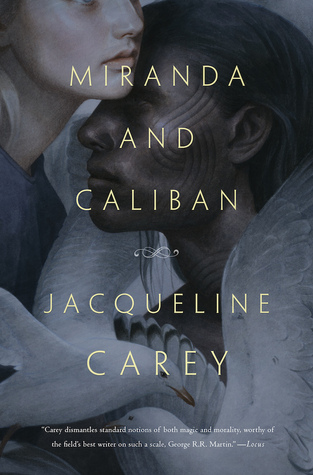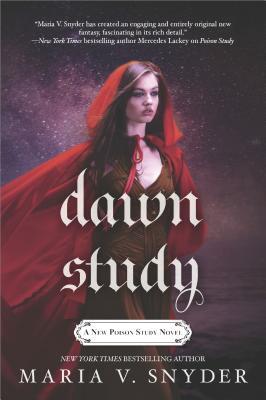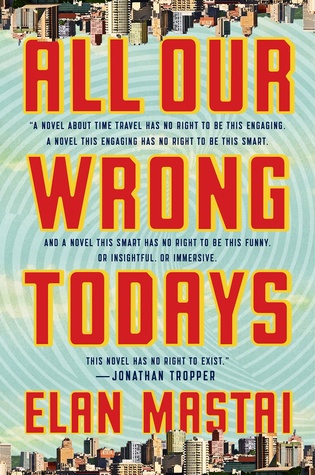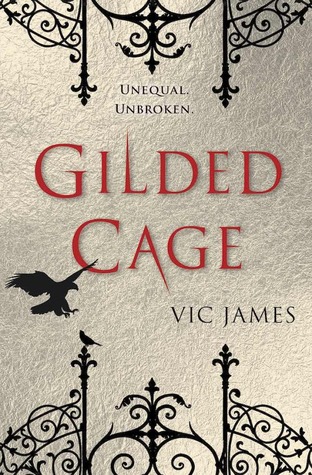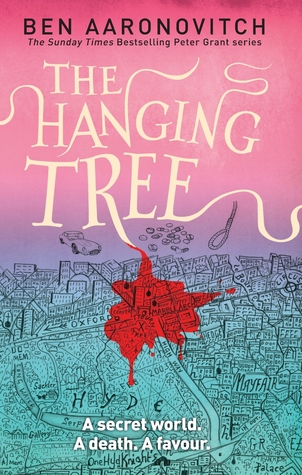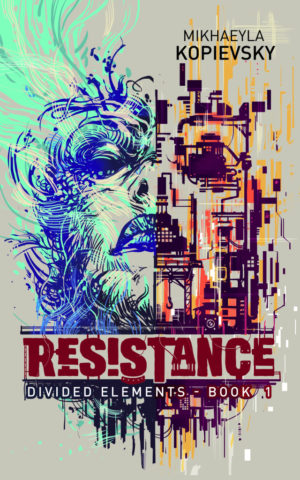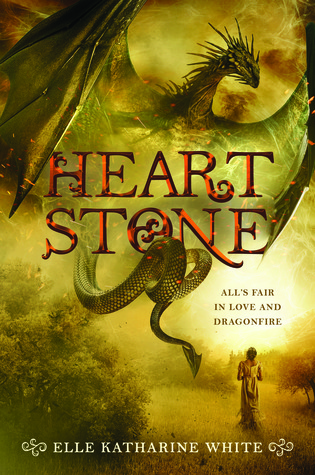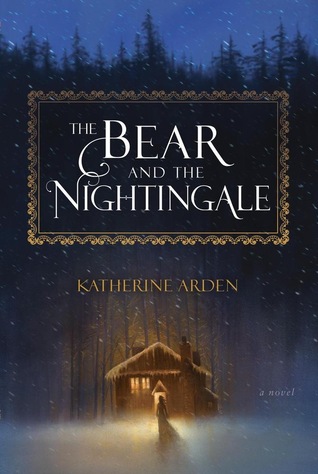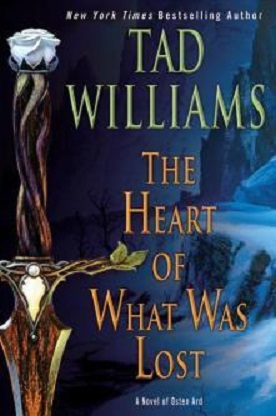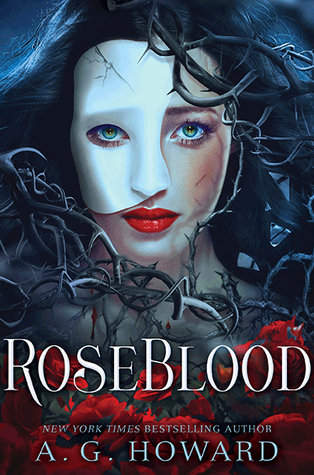Retellings are always tricky, because you’re dealing with the memories and emotions associated with reading the original source material, and they don’t always live up to readers’ expectations. But Jacqueline Carey did a bang-up job on this retelling of Shakespeare’s The Tempest, and I can’t wait for people to read this story. Even if you aren’t an expert on Shakespeare (I’m certainly not!), you’ll appreciate what the author has done: rather than rehash the story you may be familiar with, she’s set hers in the years leading up to the events of The Tempest. Carey’s writing closely mimics the style of Shakespeare, which some readers are going to love and others aren’t, but it was pure magic to me. What a lovely prose writer she is! Although the formal writing caught me off guard in the beginning, once I got into the rhythm of it, I couldn’t imagine this story being told any other way. Miranda is only six years old when the story begins. She and her father live alone in a crumbling castle on a deserted island, with only animals and elemental spirits to keep them company. Prospero is a magician and has called forth these spirits and…
Dawn Study is the conclusion of Maria V Snyder’s excellent series that started a number of years ago with Poison Study and brought to us the characters of Yelena and Valek. I think it’s very fitting that this final series once again brought to the fore those two characters that we all came to love so much from the Study books. Spoiler alert: if you haven’t read the previous books in the series you might want to look away about now as this review will undoubtedly contain spoilers. You have been warned! So, we pick up virtually where the last book left off. Yelena is pregnant and the baby seems to be drawing her magic in some unknown way, making her a magic free zone and also leaving her incredibly vulnerable to any number of people who have come to hold a grudge over the years not to mention an assortment of assassins. Yelena Is from Sitia and has (or at least had) very powerful magical abilities. Valek, on the other hand is from Ixia. Ixia lives in fear of those with magic and think all magic users should be eradicated. The Commander of Ixia has very strong views on…
Elan Mastai opens his debut (and, in my view, awkwardly-titled) novel All Our Wrong Todays, with a great hook: the world that we are living in is a mistake, a dystopic alternate timeline that never should have happened. We’re supposed to live in a retro-future paradise of flying cars and instantly-generated clothing. Our should be a world without want or poverty, where no whim or desire goes unfulfilled. Food, clothes, employment, and even sexual partners (provided you don’t mind, say, an artificial construct made from the DNA of your ex) are all available in whatever form a person might choose. This paradise was made possible by the Goettreider Engine, which uses the earth’s motion to generate limitless clean energy. So profoundly has this invention changed the course of human history, that its inventor, Lionel Goettreider has become the most celebrated man of modern history. At least that’s how it’s supposed to be. Our narrator, Tom Barren, tells us pretty quickly that the world is dangerous and messy and violent because he has somehow messed it up. I’m a sucker for this kind of alternate-reality novel. I also happen to love witty first person narratives focusing on messed up or underachieving protagonists. Rarely…
In an atmosphere somewhat reminiscent of Hunger Games and Red Rising (and many other dystopian novels), the world we encounter has a stark division between the classes. There are the elite Skilled, who though fewer in numbers, control Britain. The Skilled, as you may guess, have magical skills that allow them to do extraordinary things, such as heal themselves, repair broken objects and enforce the Silence (which ultimately means, messing with peoples brains to prevent them from speaking about things that the Skilled person does not want to be discussed). The general masses of normal people usually have little or no contact with Skilled, who are perceived as untouchable, unknowable things. People are not real sure how much of their fabled powers are truth versus exaggeration. I found in this book neither side sees a humanity in the other group. Through one POV we get an inside look at Millmoor, a slavetown. We also get to see that some slaves are able to find ways to rebel, and I found this to be exciting and fun. These sections were hands down my favorite within the book. We also get perspectives from a family living within a Skilled household, serving their…
After two years of watching the release date hover in flux and getting pushed back time and time again, I must confess waiting for this book was its own special kind of agony. That was also when I realized I was irrevocably addicted to Peter Grant. The Hanging Tree is book six of the series which returns to London and places the main story arc back on track, following the short respite we took to the countryside with our protagonist in Foxglove Summer. The story begins with a drug-related death at a house party in one of the most exclusive residential areas in the city. Normally, the case wouldn’t have been within the purview of the Folly, which the Met’s investigative unit for all things magical and paranormal, except for the fact that one of the party goers turned out to be the daughter of Lady Ty, goddess of the river Tyburn. Suddenly, Peter is in a bind since he owes Lady Ty a favor, and as such he has reluctantly agreed to do all he can to keep her teenage daughter Olivia out of investigation. But as it turns out, his promise might be a moot point. After all,…
Anaiya is an elite Peacekeeper tasked to guard the Co-operative of Otpor from Unorthodoxy. Bred to be competitive, she strives to be the best – but when Resistance rises in the Precincts, the best way to bring it down is to join it. In a culture that defines its people by their dominant Element, can a passionless, disciplined Fire Elemental believably become a Bohemian Element of Air? Australian author Mikhaeyla Kopievsky’s debut novel is the first in a new series (Divided Elements) set in a post-apocalyptic Paris (Otpor) – a lonely city that survives in the blasted Wasteland. The Co-operative has developed a strict social framework to ensure its survival, which has helped it flourish in what appears to be an otherwise empty world. “Orthodoxy – the right belief and true knowledge that all humans, born or created, have an innate dominant Element that determines their attitudes, perspectives and abilities. An Element that, when properly aligned and strengthened through conditioning, produces maximum productivity and optimal functioning of the individual, the Element and the Cooperative.” Resistance is a deceptively simple story – it’s easy to dismiss as just another dystopian struggle, probably best aimed at younger readers with its present tense narration and focus on feelings. But there’s more here…
When I heard this book described as “Pride and Prejudice with dragons,” my first reaction was “Yes!” But then I thought, “Huh? That sounds…weird?” This was an odd book for me because of the strange mix of elements that don’t quite seem to fit together. And yet, I loved it! How can one book evoke such mixed feelings? Even as I was gasping at White’s wonderfully unique world building, I couldn’t get over the fact that her story was literally matching the plot of Pride and Prejudice beat for beat. It was an unsettling feeling for me, as I knew exactly what was going to happen next in some spots. The story had two distinct parts for me–the conservative and proper beginning, and the all-out violent battle at the end. But one thing is certain: I could not stop turning the pages. If you’ve read Jane Austen’s classic, then you have an idea of what you’re in for—well, at least until the dragons show up. Aliza Bentaine (Elizabeth Bennett) lives with her parents and three sisters Anjey, Leyda and Mari in Merybourne Manor, a modest home in Hart’s End. But their peaceful life has been shattered by a recent influx of…
The Bear and the Nightingale is one of those gorgeous nuggets of a book that you simply devour. As soon as I read the synopsis, I wanted this book, in fact, lets be honest, as soon as I saw the cover – I wanted this book – which might sound fickle, because you shouldn’t judge a book by it’s cover after all. However, fickle or not, the inside of this book is more than a match for the outer packaging. This is definitely my sort of book. The writing is really quite beautiful, the author almost hypnotises you, she lulls you into a false sense of security with a beginning that draws you slowly in with the promise of folklore, myth, icy forests and fairytales retold and then before you know it the temperature has dropped further, menace is in the air and threatening shadows lurk in the darkest corners. As we begin the story we make the acquaintance of the Vladimirovich family. Pyotr the father, a hard but fair man for the times in which he lives, he is thought well of by the people in the village. He loves his wife and is devastated when he loses her in…
This was never going to be an impartial review. Tad Williams’s Memory, Sorrow, and Thorn novels are easily among my favorites in the genre. These fantasy novels are beautifully written, full of vivid and believable characters, and are truly epic in scope. It’s not an exaggeration to say I rarely pick up a fantasy novel without, on some level, wondering how it will compare to Williams’s series. I was therefore thrilled to learn that Williams would be returning to realm of Osten Ard with a new trilogy, the first volume of which will be published in April. Bridging the two series, this short novel (which apparently started out as a novella, but in typical Williams fashion, grew larger than originally planned) is set shortly after the events of To Green Angel Tower, the final volume (or volumes, depending on your point of view) of the original series. So, perhaps inevitably, I loved this book, which is beautifully written and full of Williams’s trademark character development and nuance. It is, however, a small work, without any pretensions to the sort of world-spanning, epoch-changing scope of the previous novels. It’s also a fairly dark tale about war-weariness and despair. Everyone in this…
Roseblood is a story that breathes new life into the gothic tale of the Phantom of the Opera. This isn’t a re-imagining as such, more a new tale with a different spin on things that resurrects the Phantom and shines on him an altogether new light. I wouldn’t say that I loved this quite as much as I hoped but it did hold my attention and I must concede that I went into this with impossibly high expectations! The story revolves around the main character of Rune Germain. At the start of the story Rune is being enrolled at a private arts school, run out of an old Opera House in France. As we accompany Rune and her mother on the drive to her new school we pretty quickly discover that things are far from rosy in Rune’s life. Rune is both gifted and afflicted with an amazing operatic ability. Her singing is practically hypnotic and could charm the birds from the trees, however, her need to sing controls her and not only does singing leave her mentally and physically drained of energy but she is unable to stop herself from bursting into song, usually at the most unwanted and…

